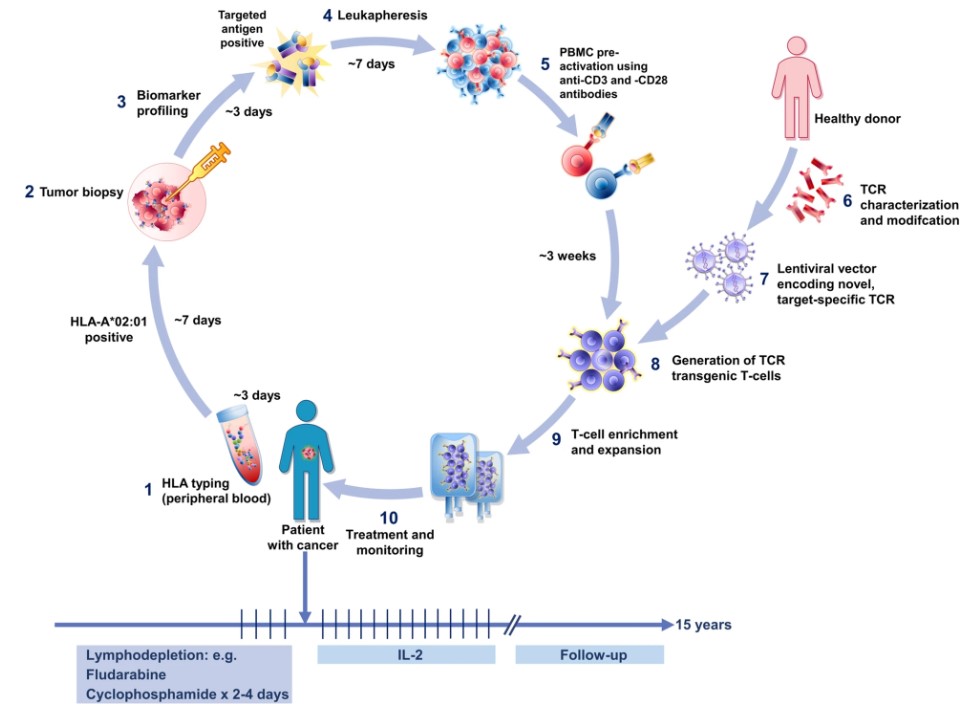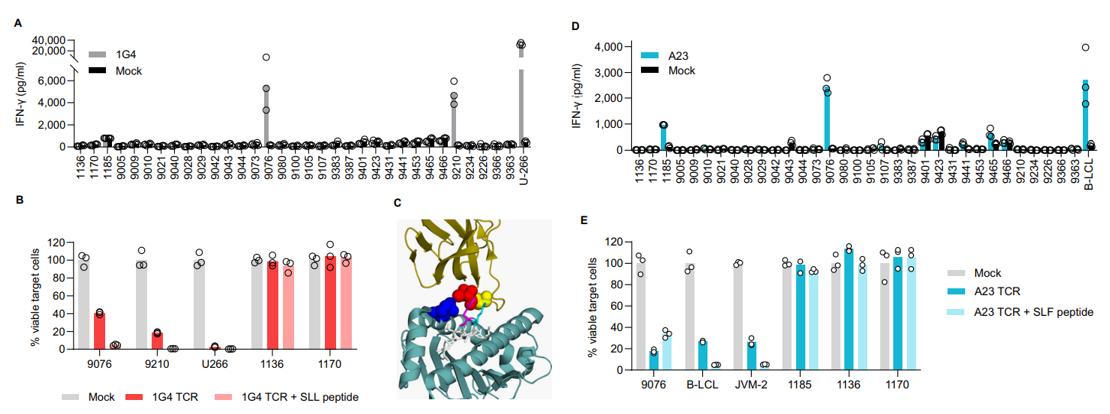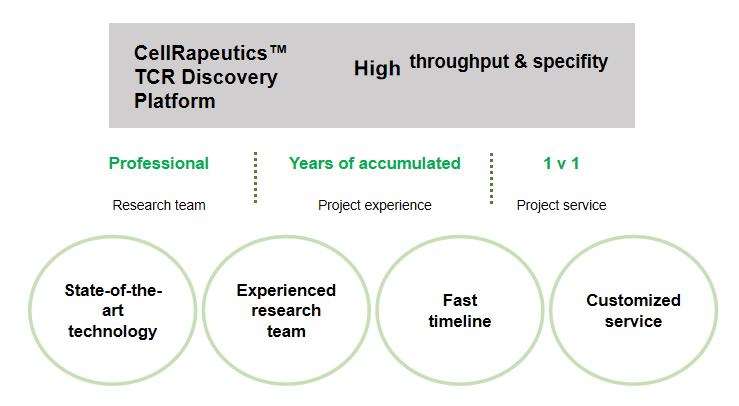All products and services are For Research Use Only and CANNOT be used in the treatment or diagnosis of disease.
In the past few decades, adoptive transfer of T cells has held great promise for cancer immunotherapy. Among these strategies, T-cell receptor (TCR) engineering of T cells presents an important personalized cancer immunotherapies. To drive the most benefit from this approach, a deep understanding of TCR affinity and functional avidity in how TCRs and T cells function in tumor-associated antigen (TAA) recognition, and the search for appropriate TCRs will be critical to generate improved adoptive T-cell therapies.
 Fig.1 Schematic diagram of TCR-based adoptive T-cell therapy.1
Fig.1 Schematic diagram of TCR-based adoptive T-cell therapy.1
Powered by years of experience in the cancer immunotherapy fields, Creative Biolabs has developed a special TCR discovery platform for Immunotherapy. We conducted mRNA sequencing and HLA polypeptide sequencing on tumor tissue and normal tissue respectively to find tumor-specific polypeptides and used these specific polypeptides to screen high-affinity and high-specificity TCRs, to ultimately construct specific T-cell engaging receptors. These T-cell engaging receptors consist of two binding domains: an affinity-maturated and highly specific TCR domain that could recognize and target tumor-specific peptides presented in particular HLA background, and a T-cell recruiting antibody domain that targets CD3 or other immunomodulated T-cell surface proteins. This novel design approach can effectively direct T cells to target peptide-HLA complex which is selectively expressed in tumor tissue.
 Fig.2 Flowchart of our CellRapeutics™ TCR discovery. (Creative Biolabs)
Fig.2 Flowchart of our CellRapeutics™ TCR discovery. (Creative Biolabs)
Representative data 1: To conduct comprehensive safety testing of TCRs, researchers outline a series of in vitro experiments to study proven TCR clone 1G4-α95:LY6 and clone A23. Through screening against a panel of cell lines presented in an extensive HLA library, researchers tested for cross-recognition of unintended HLA alleles.
 Fig.3 Allo-reactivity profile mapping of 1G4 TCR and A23 TCR with cross-recognition of non-expected HLA-alleles.2
Fig.3 Allo-reactivity profile mapping of 1G4 TCR and A23 TCR with cross-recognition of non-expected HLA-alleles.2

Prominent in the field of TCR research, we provide a wide range of analysis approaches including single-cell sequencing, FACS sorting, and mRNA sequencing to empower TCR discovery.
We employ within-the-firm kits to ensure high-quality, on-time delivery of global customers' projects and present the desirable results in advance.
We offer a full-around customized TCR discovery service from sample processing to data validation with the most up-to-date technical solutions.
Q1: Compared to CAR-T therapy, what are the advantages of TCR-T therapy?
A1: CAR-T therapy has shown remarkable efficacy in hematologic malignancy treatment, while shown less effective against solid tumors. CAR-T cells can only recognize surface TAAs, yet suitable antigens are difficult to identify in many tumors, such as most aberrant intracellular cancer antigens and some are only expressed in the context of MHC complexes. However, TCR-T cells can recognize MHC–antigen complexes and ensure TCR–peptide-MHC interaction which can be exploited to trigger immune responses. More importantly, TCR-T cells produce lower cytokine levels even at a high antigen density, while CAR-T cells prompt significant toxicities such as CRS.
Q2: What factors will be more challenging for TCR discovery?
A2: TCR affinity and functional avidity play an important role in how TCRs and T cells function in tumor-associated antigen (TAA) recognition. It is critical to find appropriate and effective TCR in the TCR discovery process. We use tumor tissue and normal tissue samples to improve the screening rate in this process and also to increase the specificity.
In the field of applying the TCR discovery platform, Creative Biolabs has extensive experience and is committed to offering the most comprehensive services for global customers. Please don't hesitate to contact us for consultation.
References
For any technical issues or product/service related questions, please leave your information below. Our team will contact you soon.
 NEWSLETTER
NEWSLETTER
The latest newsletter to introduce the latest breaking information, our site updates, field and other scientific news, important events, and insights from industry leaders
LEARN MORE NEWSLETTER NEW SOLUTION
NEW SOLUTION
CellRapeutics™ In Vivo Cell Engineering: One-stop in vivo T/B/NK cell and macrophage engineering services covering vectors construction to function verification.
LEARN MORE SOLUTION NOVEL TECHNOLOGY
NOVEL TECHNOLOGY
Silence™ CAR-T Cell: A novel platform to enhance CAR-T cell immunotherapy by combining RNAi technology to suppress genes that may impede CAR functionality.
LEARN MORE NOVEL TECHNOLOGY NEW SOLUTION
NEW SOLUTION
Canine CAR-T Therapy Development: From early target discovery, CAR design and construction, cell culture, and transfection, to in vitro and in vivo function validation.
LEARN MORE SOLUTION